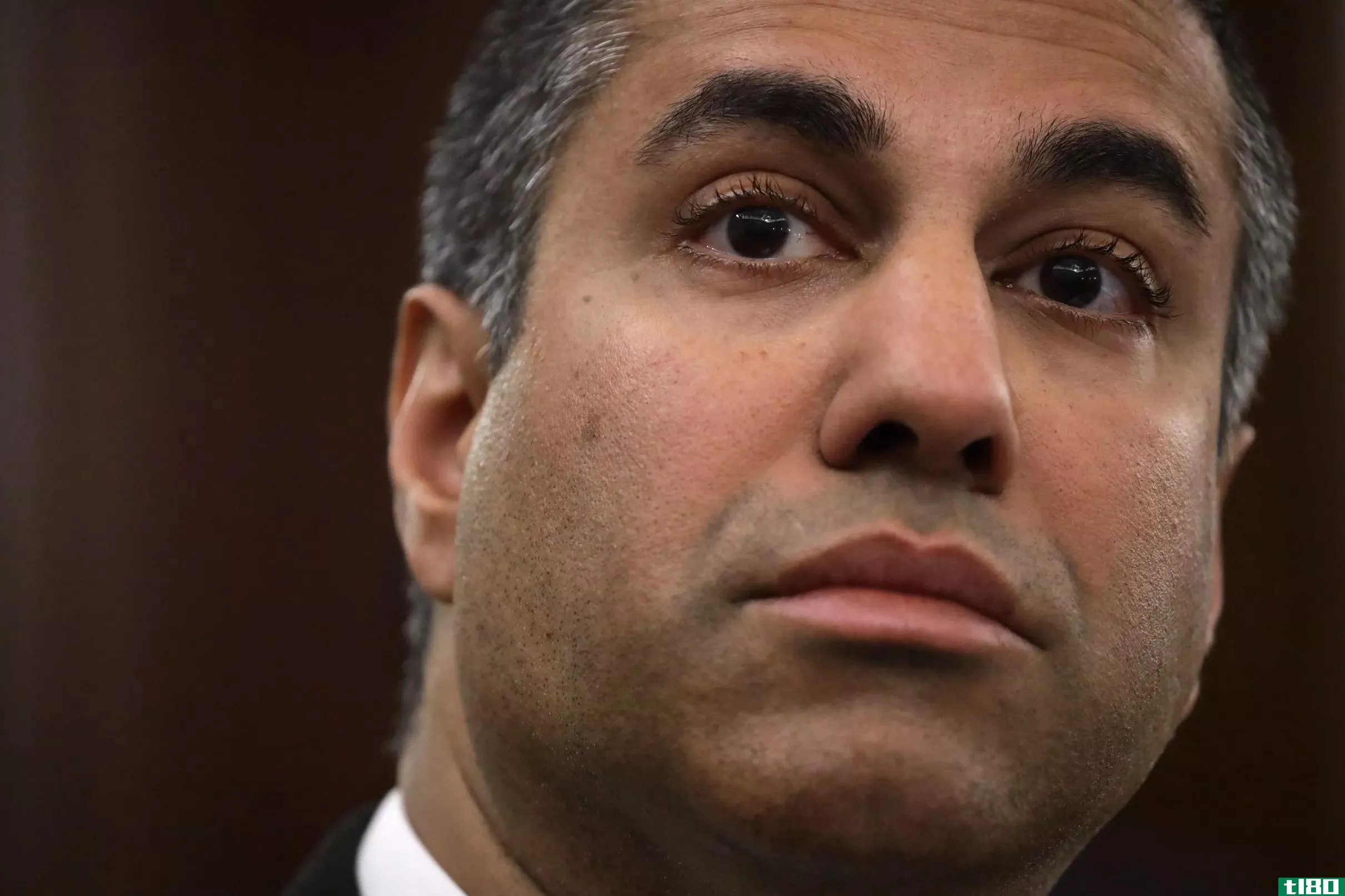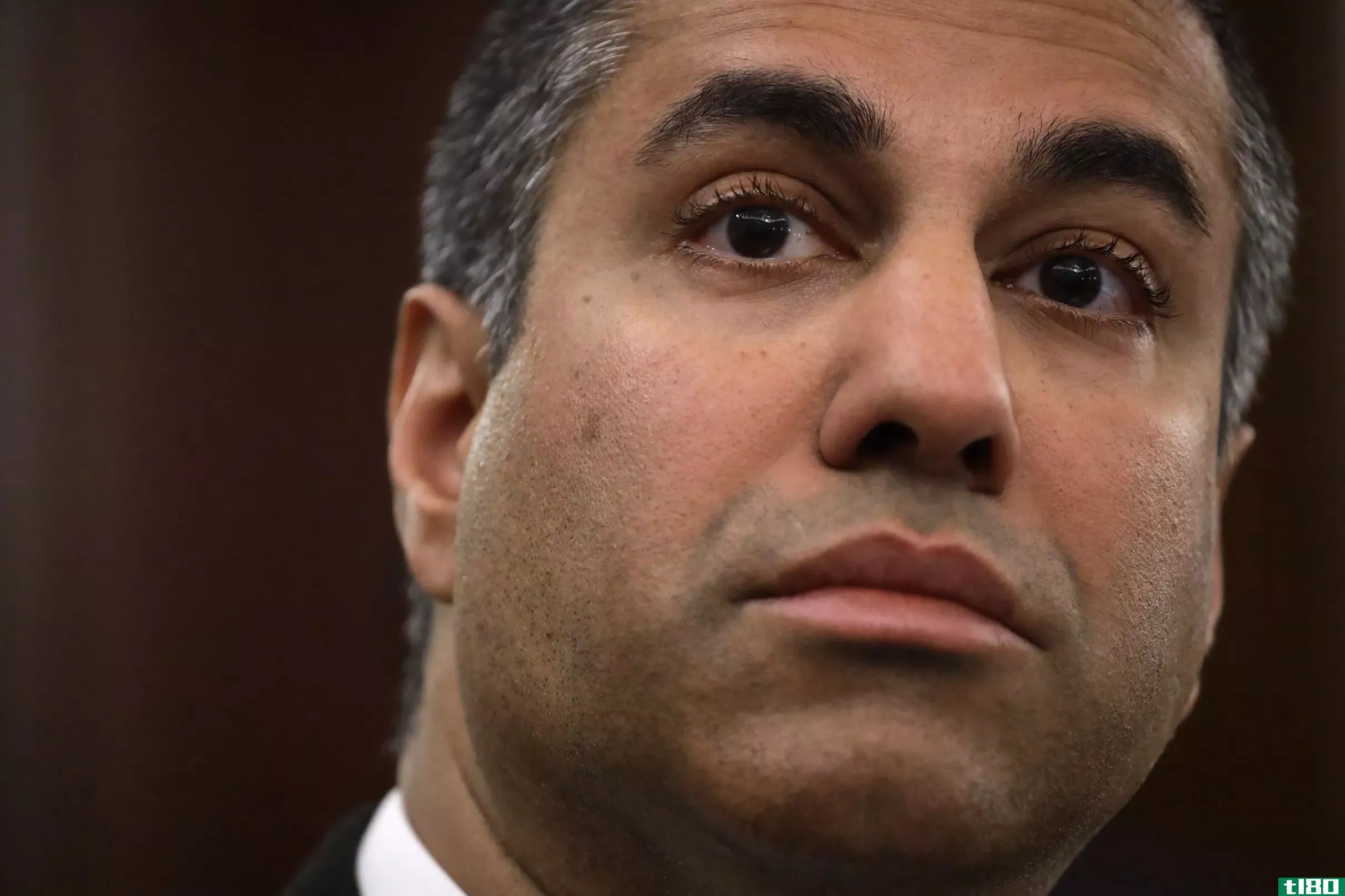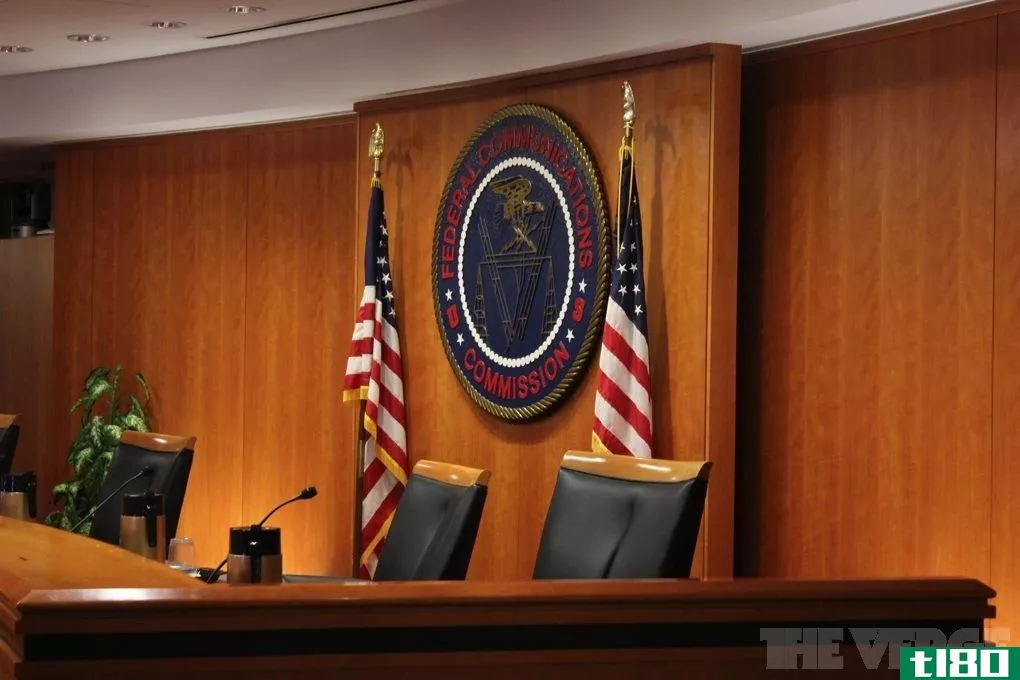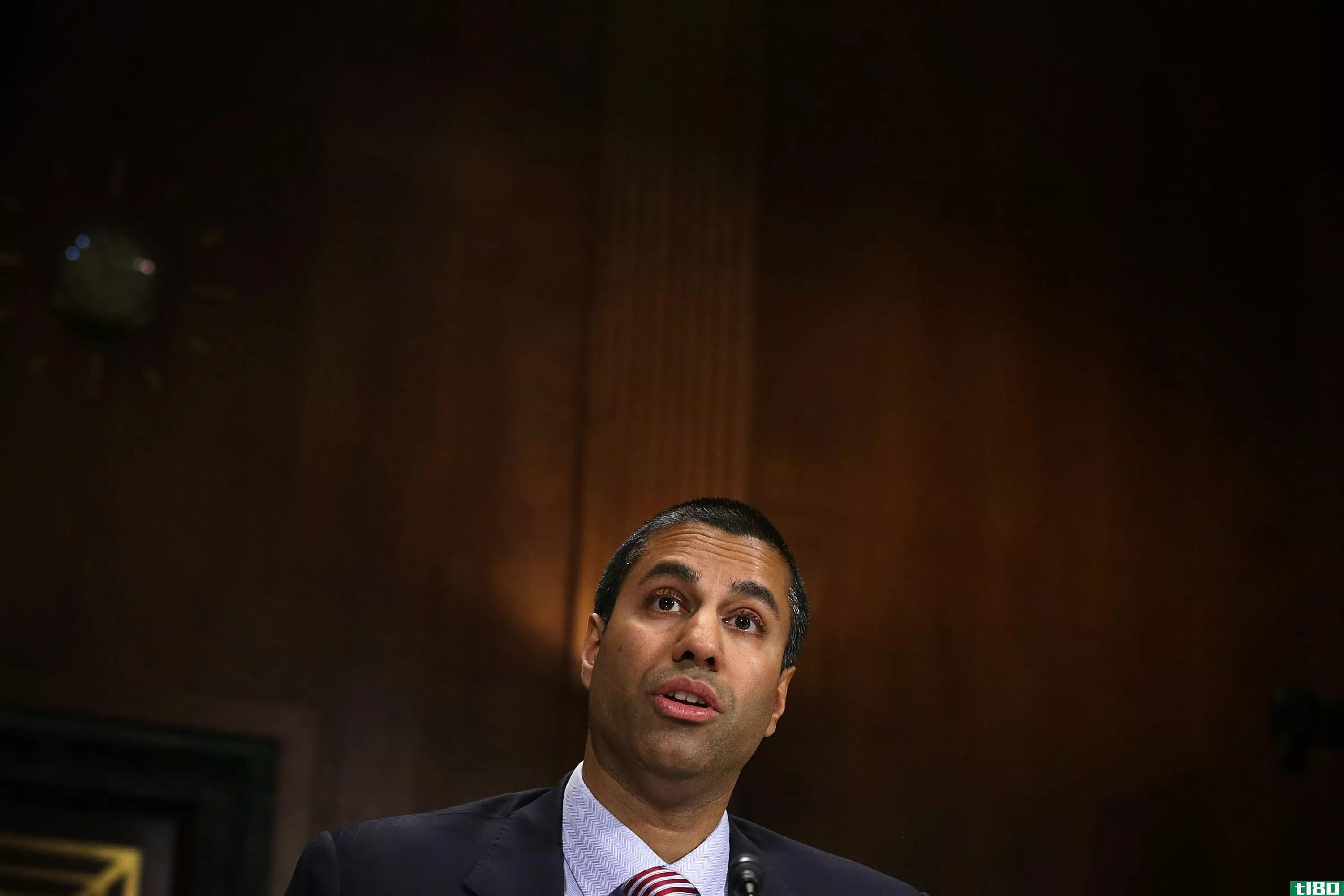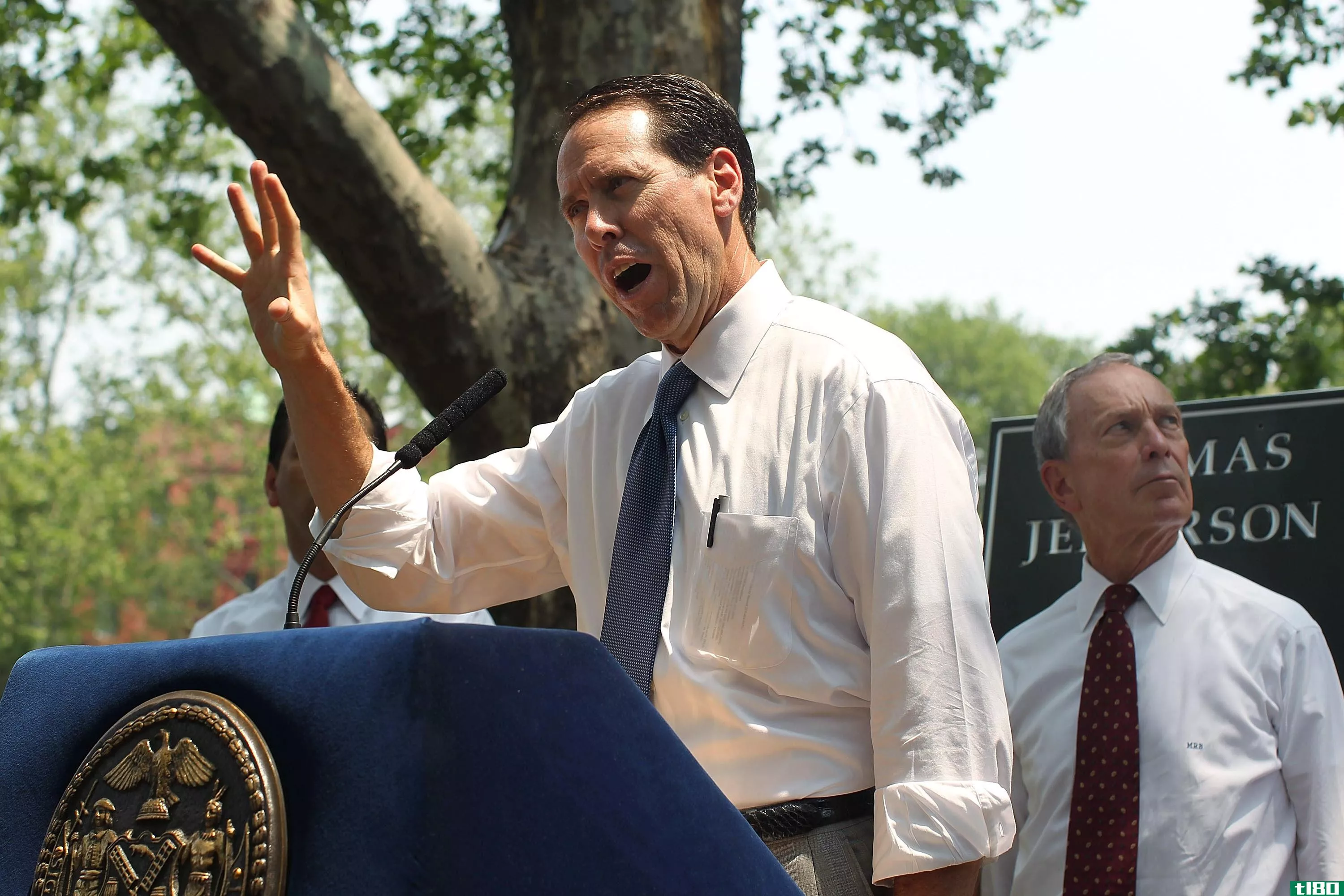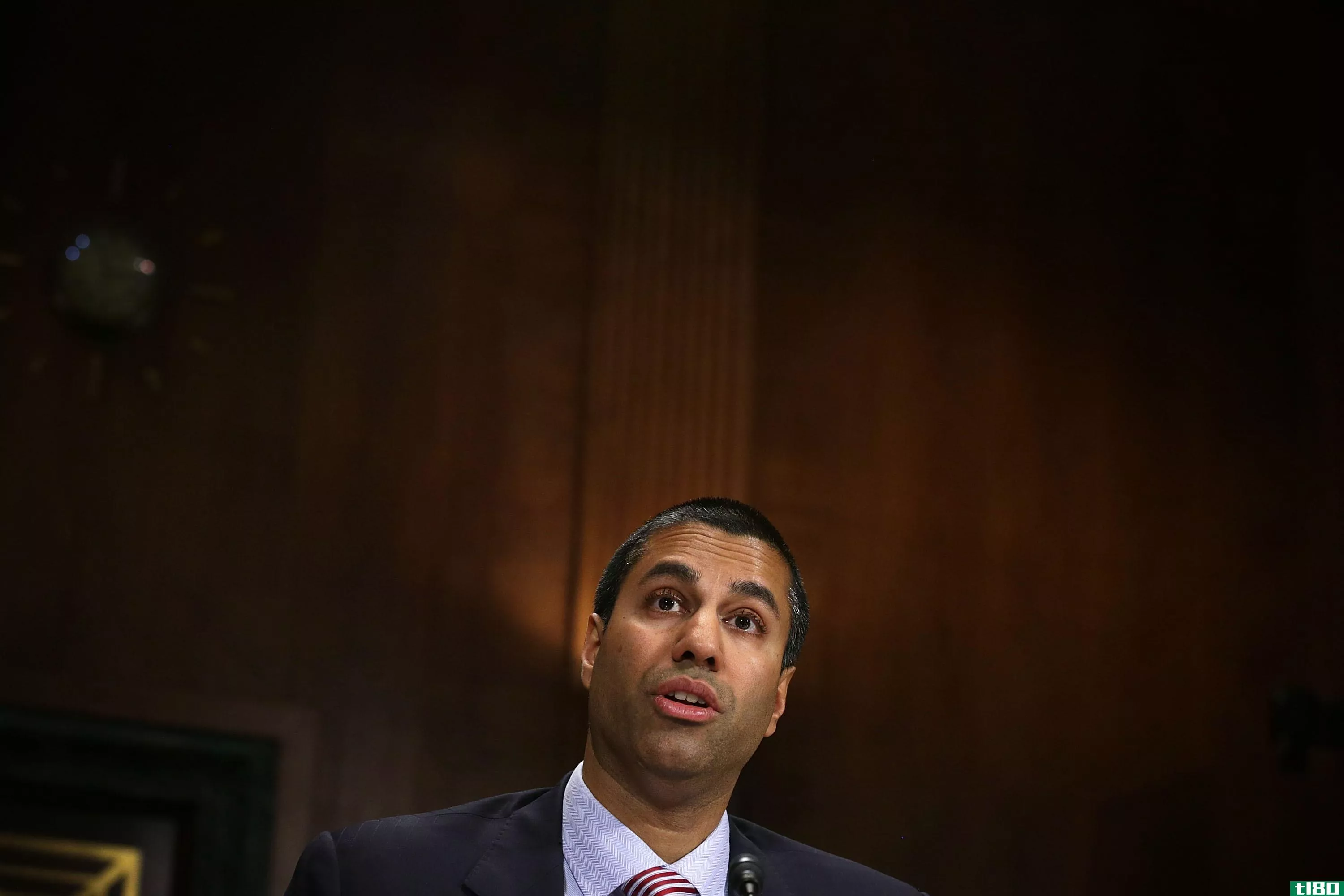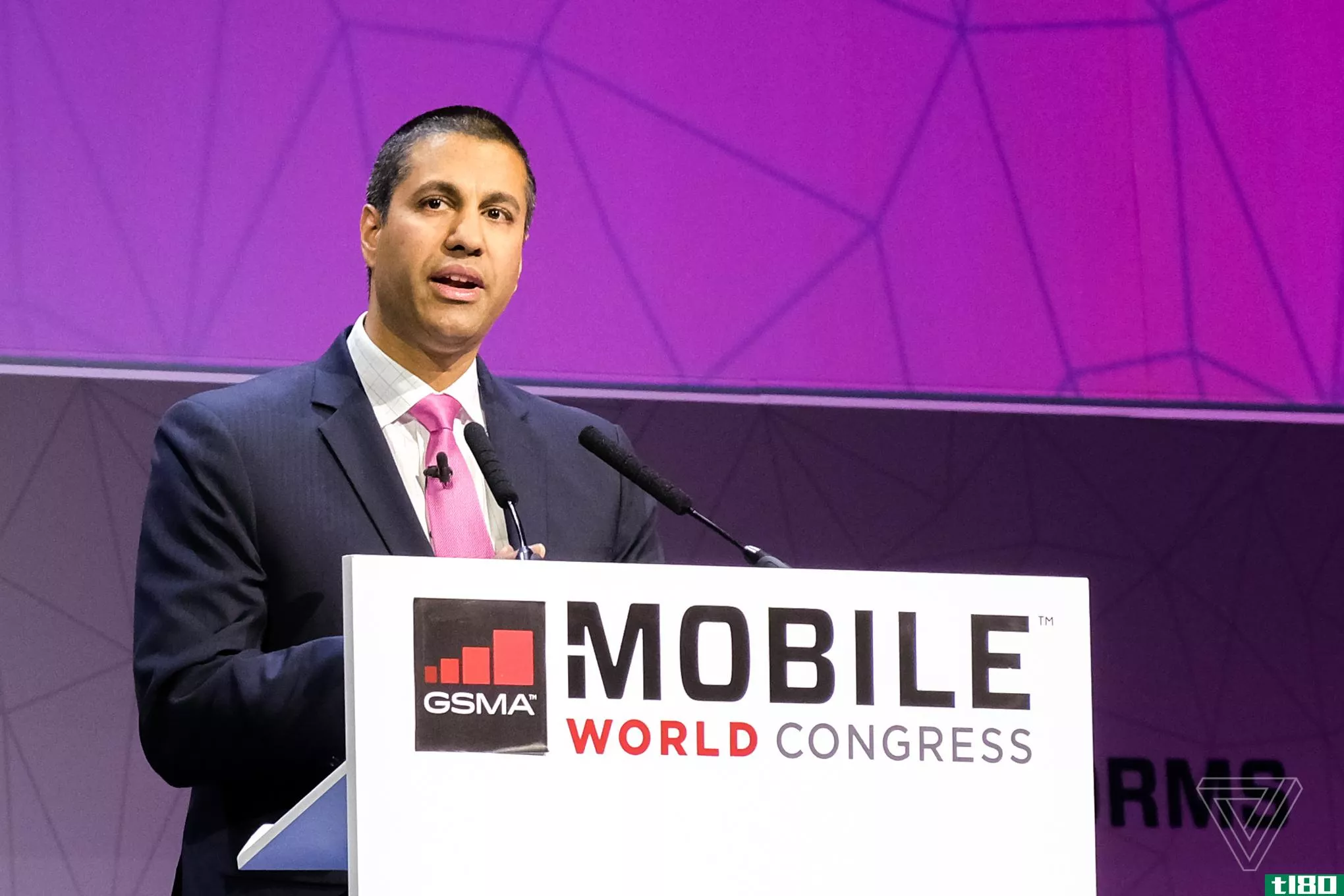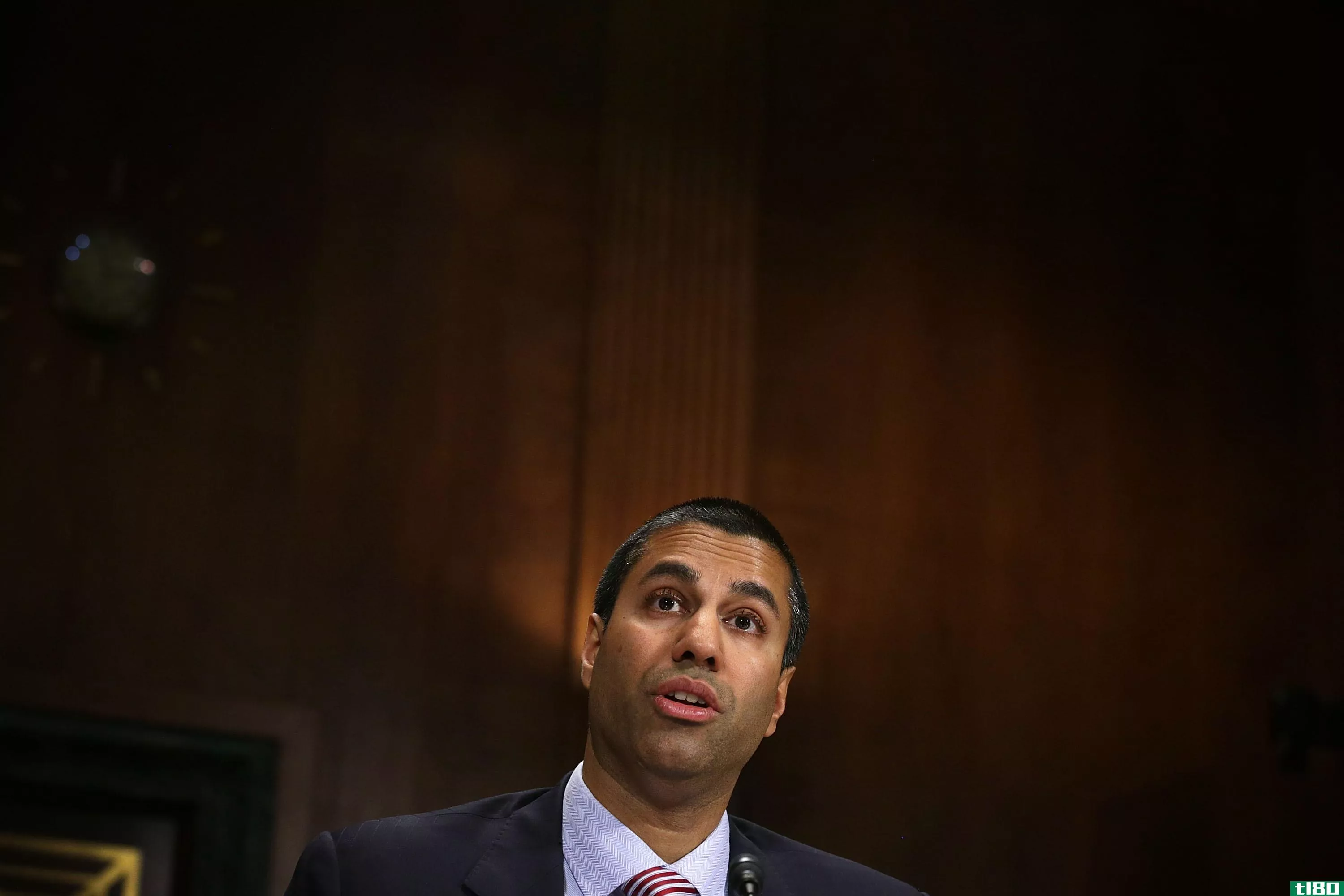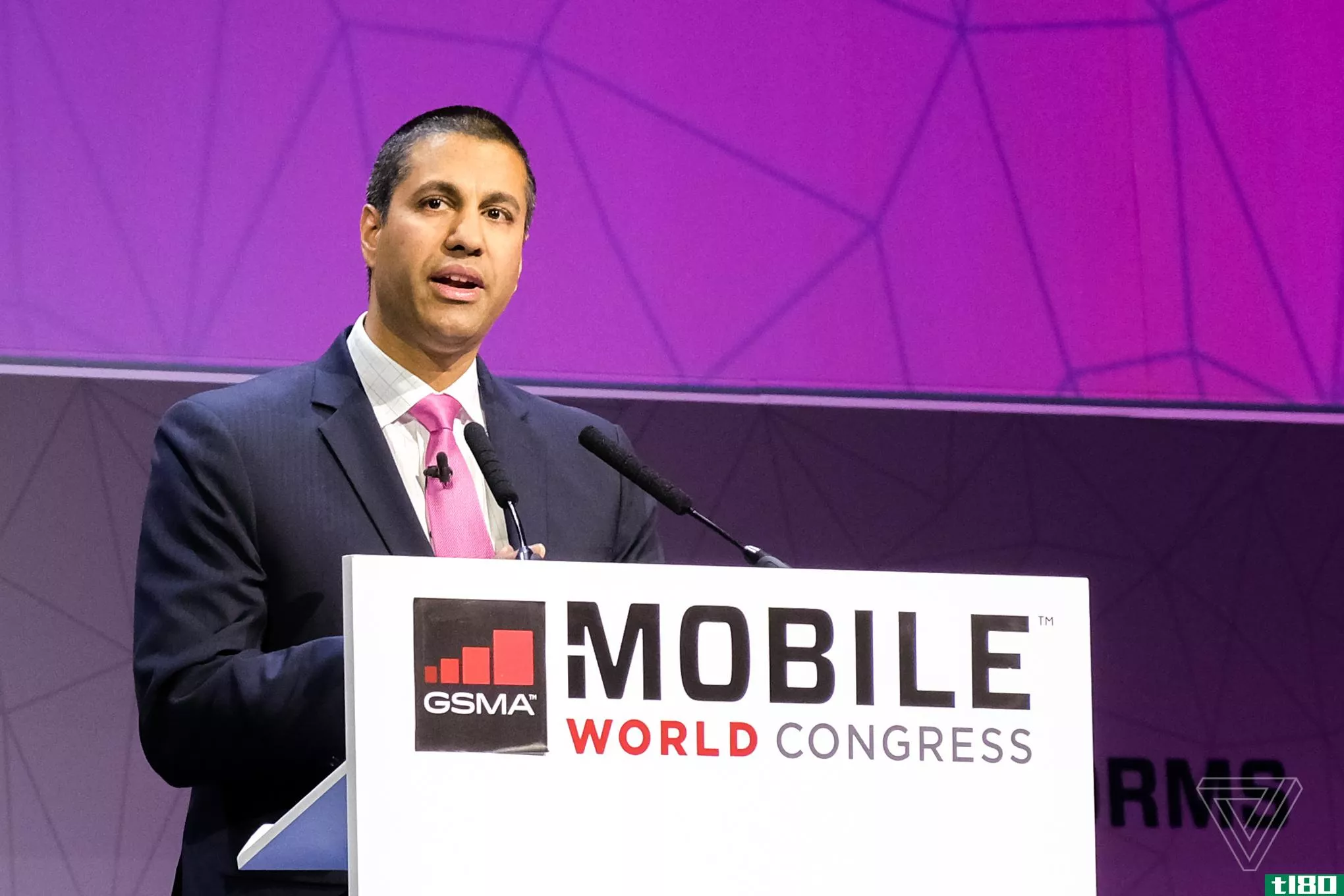阅读fcc主席ajit pai关于扼杀网络中立性的声明
今年早些时候,特朗普**成立不久,阿吉特·帕伊(Ajit Pai)被任命为FCC主席,他很快就将扭转2015年通过的网络中立规则作为目标。今天,他实现了自己的愿望,并在投票前的一次演讲中解释了为什么他认为这是合适的。
在他的评论中,Pai重申了他经常谈论的一些观点,再次表示“互联网在2015年没有被破坏。我们没有生活在数字反乌托邦中”,“没有问题需要解决”,忽略了互联网提供商近年来事实上在各个方面屏蔽了内容。
该演讲接着对监管互联网提供商和监管网站(如Facebook)进行了似是而非的比较,称只对其中一方实施规则而不对另一方实施规则是不公平的。”[网站]经常屏蔽他们不喜欢的内容。他们会定期决定你看到什么新闻、搜索结果和产品——也许更重要的是,你看不到什么,”Pai说。
Pai最后说,在这次投票之后,“美国人仍然可以访问他们想访问的网站。他们仍然能够享受他们想要享受的服务。”这在一段时间内肯定是正确的。但Pai也刚刚投票取消了保证这些东西的规则,所以对他来说承诺是一件奇怪的事情。
这是Pai的书面声明。他的实际演讲因会议室的疏散而短暂中断,因此与演讲略有不同——尽管他或多或少从他结束的地方开始:
The Internet is the greatest free-market innovation in history. It has changed the way we live, play, work, learn, and speak. During my time at the FCC, I’ve met with entrepreneurs who have started businesses, doctors who have helped care for patients, teachers who have educated their students, and farmers who increased their crop yields, all because of the Internet. And the Internet has enriched my life immeasurably. In the past few days alone, I’ve downloaded interesting podcasts about blockchain technology, ordered a burrito, managed my playoff-bound fantasy football team, and—as you may have seen—tweeted.
What is resp***ible for the phenomenal development of the Internet? It certainly wasn’t heavy-handed government regulation. Quite to the contrary: At the dawn of the commercial Internet, President Clinton and a Republican Congress agreed that it would be the policy of the United States “to preserve the vibrant and competitive free market that presently exists for the Internet . . . unfettered by Federal or State regulation.”
This bipartisan policy worked. Encouraged by light-touch regulation, the private sector invested over $1.5 trillion to build out fixed and mobile networks throughout the United States. 28.8k modems gave way to gigabit fiber connecti***. Innovators and entrepreneurs grew startups into global giants. America’s Internet economy became the envy of the world.
And this light-touch approach was good for c***umers, too. In a free market full of permissionless innovation, online services blossomed. Within a generation, we’ve gone from email as the killer app to high-definition video streaming. Entrepreneurs and innovators guided the Internet far better than the clumsy hand of government ever could have.
But then, in early 2015, the FCC jettisoned this successful, bipartisan approach to the Internet. On express orders from the previous White House, the FCC scrapped the tried-and-true, light touch regulation of the Internet and replaced it with heavy-handed micromanagement. It decided to subject the Internet to utility-style regulation designed in the 1930s to govern Ma Bell.
This decision was a mistake. For one thing, there was no problem to solve. The Internet wasn’t broken in 2015. We weren’t living in a digital dystopia. To the contrary, the Internet is perhaps the one thing in American society we can all agree has been a stunning success.
Not only was there no problem, this “solution” hasn’t worked. The main complaint c***umers have about the Internet is not and has never been that their Internet service provider is blocking access to content. It’s that they don’t have access at all or enough competition. These regulati*** have taken us in the opposite direction from these c***umer preferences. Under Title II, investment in high-speed networks has declined by billi*** of dollars. Notably, this is the first time that such investment has declined outside of a recession in the Internet era. When there’s less investment, that means fewer next-generation networks are built. That means less competition. That means fewer jobs for Americans building those networks. And that means more Americans are left on the wrong side of the digital divide.
The impact has been particularly serious for **aller Internet service providers. They don’t have the time, money, or lawyers to navigate a thicket of complex rules. I have personally visited some of them, from Spencer Municipal Utilities in Spencer, Iowa to Wave Wireless in Pars***, Kansas. I have personally spoken with many more, from Amplex Internet in Ohio to AirLink Services in Oklahoma. So it’s no surprise that the Wireless Internet Service Providers Association, which represents **all fixed wireless companies that typically operate in rural America, surveyed its members and found that over 80% “incurred additional expense in complying with the Title II rules, had delayed or reduced network expansion, had delayed or reduced services and had allocated budget to comply with the rules.” Other **all companies, too, have told the FCC that these regulati*** have forced them to cancel, delay, or curtail fiber network upgrades. And nearly two dozen **all providers submitted a letter saying the FCC’s heavy-handed rules “affect our ability to find financing.” Remember, these are the kinds of companies that are critical to providing a more competitive marketplace.
These rules have also impeded innovation. One major company, for instance, reported that it put on hold a project to build out its out-of-home Wi-Fi network due to uncertainty about the FCC’s regulatory stance. And a coalition of 19 municipal Internet service providers—that is, city-owned nonprofits—have told the FCC that they “often delay or hold off from rolling out a new feature or service because [they] cannot afford to deal with a potential complaint and enforcement action.”
None of this is good for c***umers. We need to empower all Americans with digital opportunity, not deny them the benefits of greater access and competition.
And c***ider too that these are just the effects these rules have had on the Internet of today. Think about how they’ll affect the Internet we need ten, twenty years from now. The digital world bears no resemblance to a water pipe or electric line or sewer. Use of those pipes will be roughly c***tant over time, and very few would say that there’s dramatic innovation in these areas. By contrast, online traffic is exploding, and we c***ume exponentially more data over time. With the dawn of the Internet of Things, with the development of high bit-rate applicati*** like virtual reality, with new activities like high-volume bitcoin mining that we can’t yet fully grasp, we are imposing ever more demands on the network. Over time, that means our networks themselves will need to scale, too.
But they don’t have to. If our rules deter the massive infrastructure investment that we need, eventually we’ll pay the price in terms of less innovation. C***ider these words from Ben Thompson, a highly-respected technology ****yst, from a post on his blog Stratechery supporting my proposal:
The question that must be grappled with . . . is whether or not the Internet is ‘done.’ By that I mean that today’s bandwidth is all we [will] need, which means we can risk chilling investment through prophylactic regulation and the elimination of price signals that may spur infrastructure build-out. . . .
If we are “done”, then the potential harm of a Title II reclassification is much lower; sure, ISPs will have to do more paperwork, but honestly, they’re just a bunch of mean monopolists anyways, right? Best to get laws in place to preserve what we have.
But what if we aren’t done? What if virtual reality with dual 8k displays actually becomes something meaningful? What if those imagined remote medicine applicati*** are actually developed? What if the Internet of Things moves beyond this messy experimentation phase and into real-time value generation, not just in the home but in all kinds of unimagined commercial applicati***? I certainly hope we will have the bandwidth to support all of that![1]
I do too. And as Thompson put it in another Stratechery post: “The fact of the matter is there is no evidence that harm exists in the sort of systematic way that justifies heavily regulating ISPs; the evidence that does exist suggests that current regulatory structures handle bad actors perfectly well. The only future to fear is the one we never discover because we gave up on the approach that has already brought us so far.”[2]
Remember: networks don’t have to be built. Risks don’t have to be taken. Capital doesn’t have to be raised. The costs of Title II today may appear, at least to some, to be hidden. But the c***umers and innovators of tomorrow will pay a severe price.
* * *
So what is the FCC doing today? Quite simply, we are restoring the light-touch framework that has governed the Internet for most of its existence. We’re moving from Title II to Title I. Wonkier it cannot be.
It’s difficult to match that mundane reality to the apocalyptic rhetoric that we’ve heard from Title II supporters. And as the debate has gone on, their claims have gotten more and more outlandish. So let’s be clear. Returning to the legal framework that governed the Internet from President Clinton’s pronouncement in 1996 until 2015 is not going to destroy the Internet. It is not going to end the Internet as we know it. It is not going to kill democracy. It is not going to stifle free expression online. If stating these propositi*** alone doesn’t dem***trate their absurdity, our Internet experience before 2015, and our experience tomorrow, once this order passes, will prove them so.
Simply put, by returning to the light-touch Title I framework, we are helping c***umers and promoting competition. Broadband providers will have stronger incentives to build networks, especially in unserved areas, and to upgrade networks to gigabit speeds and 5G. This means there will be more competition among broadband providers. It also means more ways that startups and tech giants alike can deliver applicati*** and content to more users. In short, it’s a freer and more open Internet.
We also promote much more robust transparency among ISPs than existed three years ago. We require ISPs to disclose a variety of business practices, and the failure to do so subjects them to enforcement action. This transparency rule will ensure that c***umers know what they’re buying and startups get information they need as they develop new products and services.
Moreover, we empower the Federal Trade Commission to ensure that c***umers and competition are protected. Two years ago, the Title II Order stripped the FTC of its jurisdiction over broadband providers. But today, we are putting our nation’s premier c***umer protection cop back on the beat. The FTC will once again have the authority to take action against Internet service providers that engage in anticompetitive, unfair, or deceptive acts. As FTC Chairman Maureen Ohlhausen recently said, “The FTC’s ability to protect c***umers and promote competition in the broadband industry isn’t something new and far-fetched. We have a long-established role in preserving the values that c***umers care about online.” Or as President Obama’s first FTC Chairman put it just yesterday, “the plan to restore FTC jurisdiction is good for c***umers. . . . [T]he sky isn’t falling. C***umers will remain protected, and the [I]nternet will continue to thrive.”
So let’s be absolutely clear. Following today’s vote, Americans will still be able to access the websites they want to visit. They will still be able to enjoy the services they want to enjoy. There will still be cops on the beat guarding a free and open Internet. This is the way things were prior to 2015, and this is the way they will be once again.
Our decision today will also return regulatory parity to the Internet economy. Some giant Silicon Valley platforms favor imposing heavy-handed regulati*** on other parts of the Internet ecosystem. But all too often, they don’t practice what they preach. Edge providers regularly block content that they don’t like. They regularly decide what news, search results, and products you see—and perhaps more importantly, what you don’t. And many thrive on the business model of charging to place content in front of eyeballs. What else is “Accelerated Mobile Pages” or promoted tweets but prioritization?
What is worse, there is no transparency into how decisi*** that appear inc***istent with an open Internet are made. How does a company decide to restrict a Senate candidate’s campaign announcement video because her views on a public policy issue are too “inflammatory”? How does a company decide to demonetize videos from political advocates without notice? How does a company expressly block access to websites on rival devices or prevent dissidents’ content from appearing on its platform? How does a company decide to block from its app store a cigar aficionado app, apparently because the company perceives that the app promotes tobacco use? You don’t have any insight into any of these decisi***, and neither do I. Yet these are very real, actual threats to an open Internet—coming from the very entities that claim to support it.
Look—perhaps certain companies support saddling broadband providers with heavy-handed regulati*** because those rules work to their economic advantage. I don’t blame them for taking that position. And I’m not saying that these same rules should be slapped on them too. What I am saying is that the government shouldn’t be in the business of picking winners and losers in the Internet economy. We should have a level playing field and let c***umers decide who prevails.
* * *
Many words have been spoken during this debate but the time has come for action. It is time for the Internet once again to be driven by engineers and entrepreneurs and c***umers, rather than lawyers and accountants and bureaucrats. It is time for us to act to bring faster, better, and cheaper Internet access to all Americans. It is time for us to return to the bipartisan regulatory framework under which the Internet flourished prior to 2015. It is time for us to restore Internet freedom.
I want to extend my deepest gratitude to the staff who have worked so many long hours on this item. From the Wireline Competition Bureau: Annick Banoun, Joseph Calascione, Megan Capasso, Paula Cech, Ben Childers, Nathan Eagan, Madeleine Findley, Doug Galbi, Dan Kahn, Melissa Kirkel, Gail Krutov, Susan Lee, Ken Lynch, Pam Megna, Kris Monteith, Ramesh Nagarajan, Eric Ralph, Deborah Sal***, Shane Taylor. From the Office of General Counsel: Ashley Boizelle, Jim Carr, Kristine Fargotstein, Tom Johnson, Doug Klein, Marcus Maher, Scott Noveck, Linda Oliver, and Bill Richardson. From the Wireless Telecommunicati*** Bureau: Stacy Ferraro, Nese Guendel**erger, Garnet Hanly, Betsy McIntyre, Jennifer Salhus, Paroma Sanyal, Jiaming “Jimmy” Shang, Don Stockdale, and Peter Trachtenberg. From the Office of Strategic Planning and Policy Analysis: Eric Burger, Mark Bykowsky, and Jerry Ellig. From the C***umer and Governmental Affairs Bureau: Jerusha Burnett. From the Public Safety and Homeland Security Bureau: Ken Carlberg. And from the Media Bureau: Tracy Waldon.
- 发表于 2021-08-21 20:18
- 阅读 ( 83 )
- 分类:互联网
你可能感兴趣的文章
fcc主席AjitPai放弃了他在法律上试图“澄清”互联网法律的冒险尝试
...它需要制定的任何规则——这与Pai自己的FCC用来扼杀网络中立性的逻辑背道而驰。但这并没有阻止Pai声称FCC确实有权这么做,这种政治策略在特朗普**中变得如此普遍,以至于我的同事拉塞尔·布兰多姆(Russell Brandom)为此创造...
- 发布于 2021-04-16 16:33
- 阅读 ( 120 )
fcc主席ajit pai将于1月20日卸任
联邦通信委员会主席阿吉特·帕伊宣布,计划在当选总统乔·拜登1月20日就职时离开委员会。Pai自2012年起在FCC任职。 Pai在一份声明中说:“在联邦通讯委员会任职,包括在过去四年中担任FCC主席,是一生的荣幸。”。...
- 发布于 2021-04-17 11:11
- 阅读 ( 160 )
fcc委员ajit pai在网络中立计划中称:“比我想象的还要糟糕”
...在2月26日的公开会议上对此进行表决。 “我现在已经阅读了332页的计划。“这比我想象的还要糟糕,”帕伊说。他特别警告说,对宽带进行重新分类将为税收和繁重的监管打开大门,并给予FCC“对互联网进行微观管理的广泛...
- 发布于 2021-04-29 00:01
- 阅读 ( 221 )
据报道,唐纳德·特朗普(donald trump)将提名网络中立对手阿吉特·帕伊(ajit pai)领导fcc
...员阿吉特·派伊(Ajit Pai)领导该机构,接替即将卸任的主席汤姆·惠勒(Tom Wheeler)。官方最快可能在今天下午宣布。 派伊最初被奥巴马总统任命为委员会的共和党成员,一直是一个可靠的保守派声音,经常公开表...
- 发布于 2021-05-09 13:10
- 阅读 ( 172 )
at&t将继续对可能违反网络中立性的流媒体特惠进行“严厉打击”
AT&T开始向客户提供可能违反网络中立性的额外津贴的计划才刚刚开始。首席执行官Randall Stephenson今天在一个财报电话会议上说,他的公司的流媒体效益可能会扩展到DeCTV之外,根据一个包裹的报告。就目前的情况来看,AT&a...
- 发布于 2021-05-09 14:46
- 阅读 ( 178 )
ajit pai正在使fcc更加透明——但只有在适合他的时候
...it Pai在第一个月经历了一场旋风,立即采取行动缩减网络中立性,减缓低收入家庭的宽带补贴,并阻止改革监狱过高通话费率的努力。 但在这一切的背景下,派出所也以透明的名义在纪委做了一系列的修改。他探索...
- 发布于 2021-05-10 00:46
- 阅读 ( 205 )
网络中立在本周已经存在了两年,而共和党人仍然想扼杀它
...私授权。 周二,Pai站在世界移动大会的舞台上,称网络中立性是“一个错误”,这相当清楚地表明,他打算将互联网提供商重新转向一种更为宽松的监管形式。 “我不认为这会太久,直到我们看到更多的投票反对网络中立,”...
- 发布于 2021-05-10 03:28
- 阅读 ( 242 )
据报道,美国联邦通信委员会(fcc)负责人帕伊(ajit pai)概述了撤销网络中立性规则的计划
...席帕伊(Ajit Pai)向电信行业协会简要介绍了他缩减网络中立性规则的计划。Pai的计划显然将维持网络中立的基本概念,但将把规则的执行权移回联邦贸易委员会,而不是FCC。 这些计划很可能会取悦共和党人,他们抱...
- 发布于 2021-05-10 15:18
- 阅读 ( 220 )
fcc主席ajit pai采取行动,禁止在航班上使用手机通话
美国联邦通信委员会(FCC)首席执行官帕伊(Ajit Pai)今天宣布了一项提案,将禁止美国航班使用**通话,暂时放弃他备受争议的计划,取消网络中立规则。 2013年,联邦通信委员会考虑放宽上世纪90年代禁止飞机语音...
- 发布于 2021-05-10 16:03
- 阅读 ( 185 )
